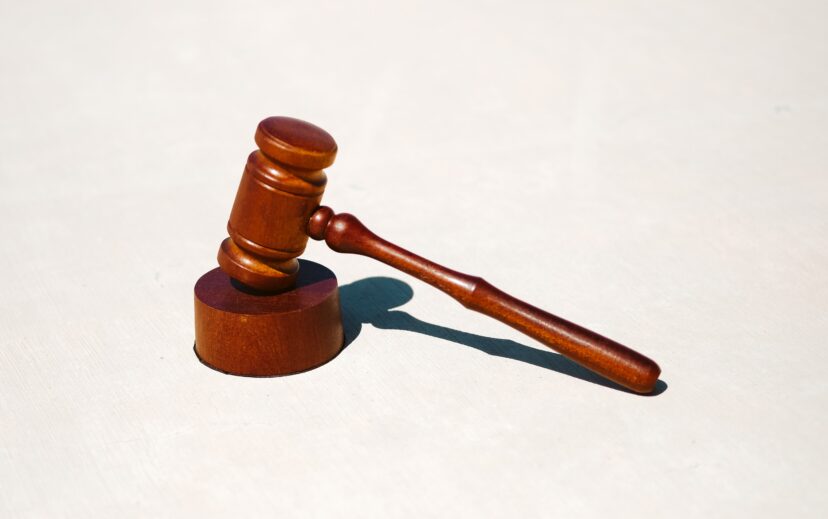In November 2020, New York State expanded its free speech protections through a new anti-SLAPP law. SLAPP stands for “Strategic Lawsuits Against Public Participation,” which are lawsuits that have no substantial basis in law and are filed to silence journalists, activists, media and entertainment companies, and others that criticize a plaintiff regarding an issue of public interest. These lawsuits can have a chilling effect on free speech, and anti-SLAPP statutes aim to protect it by discouraging plaintiffs from filing baseless lawsuits. The new anti-SLAPP law in New York State is much broader in scope and provides greater First Amendment protections.
Changes To New York’s Anti-SLAPP Law
New York’s old statute applied to a limited number of disputes, which were often related to real estate development. Developers would file an application to develop real estate, and others would report on or challenge the application. The developer would then sue these critics, hoping to silence the critics by the high costs of defending a lawsuit. The former statute also gave courts discretion to award legal fees, meaning that even if the defendant was successful in dismissing the lawsuit, the court was not required to award attorneys’ fees to the prevailing defendant.
The updated anti-SLAPP law applies to two types of statements:
- any communications in a public place open to the public or a public forum in connection with an issue of public interest, or
- any other lawful conduct in furtherance of the exercise of the constitutional right of free speech in connection with an issue of public interest, or in furtherance of the exercise of the constitutional right of petition.
The term “public interest” is construed broadly and means “any subject other than a purely private matter.” Whether the relevant speech is an issue of public interest or not is fact-specific, and federal and state courts have interpreted the new law to include a variety of communications. To illustrate, a federal court recently held that an email and letter discussing “sexual impropriety and power dynamics in the music industry,” which were sent in November 2017 during the #MeToo movement was a matter of public interest under the new law. The case, Coleman v. Grand, No. 18-CV-5663, 523 F. Supp. 3d 244, 259 (E.D.N.Y. Feb. 26, 2021), is currently awaiting a decision from the Second Circuit Court of Appeals. Appeal docketed, No. 21-800 (2d Cir. Mar. 26, 2021).
Similarly, in a separate case, a New York State court interpreted the amended law to include a negative online review of plastic surgery services on Yelp.com. In Aristocrat Plastic Surgery, P.C. v. Silva, the court held that such reviews concern “medical treatment rendered by a physician’s professional corporation and the physician performing surgery under its auspices,” which is a legitimate matter of public concern. 206 A.D.3d 26, 32 (1st Dep’t 2022).
If a defendant believes that the lawsuit brought against them is a SLAPP lawsuit, they may file a motion to dismiss the action under the anti-SLAPP statute. In support of an anti-SLAPP motion to dismiss, the defendant must provide proof that the claim relates to the defendant’s exercise of their free speech rights “on a matter of public interest.” Defendants can submit documentary evidence and sworn statements in support of their motion, allowing them, if successful, to obtain an early dismissal of the lawsuit. Once the defendant provides evidence that the anti-SLAPP law applies, the burden of proof shifts to the plaintiff. If the plaintiff then cannot show that the claim has a “substantial basis in law” or is supported by a “substantial argument” to modify existing law, the suit will be dismissed.
While the motion is being decided by the court, the discovery process of the case is paused. The purpose of the discovery hold is to stop the defendant from incurring expenses while the court decides whether to grant the defendant’s motion to dismiss the case.
What Are The Consequences Of Filing A Lawsuit To Prevent Free Speech?
If the plaintiff fails to meet its burden of proof to show that the claim has a substantial basis in law, the action will be dismissed. The plaintiff will then be required to pay the defendant’s attorneys’ fees and other litigation costs. Additionally, defendants may be entitled to “other compensatory damages” if they prove that the plaintiff brought the case to harass, intimidate, punish or maliciously inhibit free speech.
How Do Courts In New York Apply The Updated Anti-SLAPP Law to Pre-Existing Defamation Suits?
New York Courts’ application of the updated law to preexisting defamation suits is tricky. At present, there exists a divergence on this matter between federal and state courts.
The Federal Cases
One of the initial federal court decisions on the retroactive application of the updated anti-SLAPP law was Palin v. New York Times Company. 510 F. Supp. 3d 21 (S.D.N.Y. 2020). In this case, Judge Jed S. Rakoff of the Southern District of New York held that the amended law applied to the ongoing lawsuit, even though it was initiated before the change in the law. Id. at 29. Similarly, Judge Eric N. Vitaliano of the Eastern District of New York in Coleman v. Grand concluded that the amendments had retroactive effect, requiring the plaintiff to prove actual malice, as the lawsuit was based on free speech regarding an issue of public interest. 523 F. Supp. 3d 244, 258 (E.D.N.Y. Feb. 26, 2021), appeal docketed, No. 21-800 (2d Cir. Mar. 26, 2021). The case was appealed to the Second Circuit Court of Appeals, was argued on May 13, 2022, and is currently awaiting a decision.
In Goldman v. Reddington, Judge Rachel P. Kovner of the Eastern District of New York also upheld the retroactive application of the anti-SLAPP amendment and allowed the defendant to amend their initial response to include an anti-SLAPP counterclaim and defense. No. 18-CV-3662, 2021 U.S. Dist. LEXIS 171340 (E.D.N.Y. Sep. 9, 2021). Judge Kovner found that the defendant’s social media posts accusing the plaintiff of rape were a matter of public interest under the updated law. Id. at *10.
The State Cases
The case of Gottwald v. Sebert involved popstar Ke$ha, who sought to add an anti-SLAPP counterclaim under the amended law to her music producer’s defamation claims against her. Although the New York Supreme Court initially allowed Ke$ha to amend her answer, the Appellate Division, First Department, reversed the decision, stating that the new anti-SLAPP law could only apply prospectively to claims initiated after the law’s change. Gottwald v. Sebert, 165 N.Y.S.3d 38 (1st Dep’t 2022). The court reasoned that there was insufficient evidence to support retroactive application of the anti-SLAPP amendments, despite the federal court’s non-binding decision in Palin. Since then, several New York State court decisions have upheld this interpretation of the anti-SLAPP amendment. See e.g., Cisneros v. Cook, 2022 NY Slip Op 05784 (1st Dep’t 2022); Kurland & Assocs., P.C. v. Glassdoor, Inc., 166 N.Y.S.3d 847 (1st Dep’t 2022); Robbins v. 315 W. 103 Enters. LLC, 164 N.Y.S.3d 823 (1st Dep’t 2022); Goldberg v. Urbach, 2022 WL 1285452, at *1 (Sup. Ct. N.Y. Cnty. 2022).
Ke$ha moved for leave to file an appeal with the New York Court of Appeals, which the Court granted. In June, the Court of Appeals affirmed the Appellate Division’s decision that the anti-SLAPP law was not broadly retroactive, but could apply to lawsuits which started or were continued after the effective date of the amendment. As a result, Ke$ha was permitted to bring a counterclaim for damages and attorneys’ fees which she incurred during the continuation of Gottwald’s lawsuit after the amendment’s effective date, but she cannot collect on any damages or costs incurred prior to the date the amendments took effect.
Ke$sha’s position was supported by several amicus briefs, including the original author to the anti-SLAPP law, New York State Senator Brad Hoylman. Senator Hoylman introduced new bills to amend the anti-SLAPP law and explicitly stated that the law applies retroactively in the 2021 and 2023 legislative sessions. Whether Senator Hoylman’s new proposals ultimately pass into law remains to be seen – thus far, the bills have failed to get out of committee.
Conclusion
Plaintiffs should be cautious about pursuing defamation actions that may violate the new anti-SLAPP law, as they could lose the case and be responsible for their adversaries’ attorneys’ fees and costs. On the other hand, defendants now have a useful tool to challenge these actions and protect their free speech rights, but they must present a strong case. If you are facing a possible SLAPP action or bringing a defamation action, it is crucial to seek advice from experienced counsel to evaluate the strength of your claim or defense. Consult an experienced attorney that can help guide you through the next steps.
Contributions to this blog by Jari Wilson.






